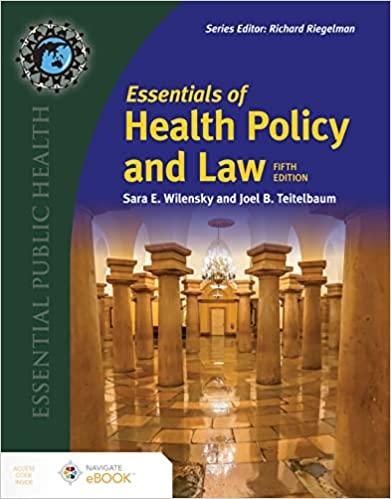Question
On October 1, 2017, a gunman opened fire on a crowd of concertgoers at the Route 91 Harvest music festival on the Las Vegas Strip.
On October 1, 2017, a gunman opened fire on a crowd of concertgoers at the Route 91 Harvest music festival on the Las Vegas Strip. From the 32nd floor of the nearby Mandalay Bay hotel, the gunman fired more than 1,000 rounds into the crowd of over 20,000 people. As a result of the attack, 58 people were killed and more than 500 injured. The gunman was a guest of the hotel. Six days before the shooting, he moved into the suite he had specifically requested and started bringing in his arsenal of at least 23 firearms and thousands of rounds. Over the six-day period, the gunman brought in 2 - 7 suitcases per day, often using the service elevator. On September 29th, he checked into the connected suite and on September 30. There are reports that the gunman had the "Do not disturb" sign on his door for 3 days.
Just three months later, police found an AR-15, a shotgun, a handgun, and lots of ammunition in a guest's room on the top floor of the Hyatt Regency in Houston just before the hotel's massive New Year's Eve celebration. The firearms were found solely because security guards called the police to assist in escorting an intoxicated the guest to his room. The guest said he had the firearms in his room because he did not want them stolen from his car, which was parked in the hotel's garage. After the guest was arrested and spent a week in jail, police said that it did not appear that he intended to use the firearms.
As you have learned, hoteliers owe their guests a right to their privacy. Absent housekeeping, maintenance, or matters pertaining to safety/emergency, hotel personnel are to leave their guests in peace and alone in private. Given the incidents described above, hotels must balance these rights to privacy with security concerns.
- In response to Mandalay Bay shooting, some hotels are revising "do not disturb" policies. One such policy is to ask a staff member (often a housekeeper) to notify management if a placard if left on a doorknob for more than 12 hours, and to ensure a hotel employee enters each guest room at least once every 24 hours. Another policy implemented by some hotels is to use a "Room occupied" sign, that tells guests not to expect total privacy and includes fine print that hotel staff can enter rooms" for security, safety, maintenance or any other purpose."
- Do you agree with these policies? Do you feel that either is a violation of the guests' privacy?
- How else can hotels balance respecting guest privacy with security concerns?
(For example - Should hotel staff be asked to keep an eye on guests and what they keep in their rooms? Should hotels do random background checks on guests? Should they run passports/ID's though security before giving guests keys?)
Step by Step Solution
There are 3 Steps involved in it
Step: 1

Get Instant Access to Expert-Tailored Solutions
See step-by-step solutions with expert insights and AI powered tools for academic success
Step: 2

Step: 3

Ace Your Homework with AI
Get the answers you need in no time with our AI-driven, step-by-step assistance
Get Started


